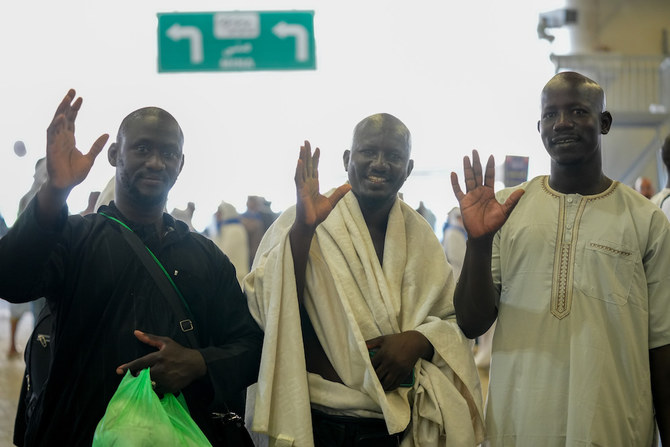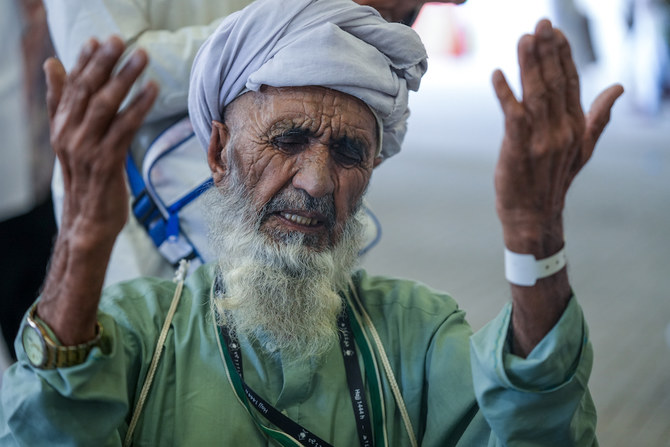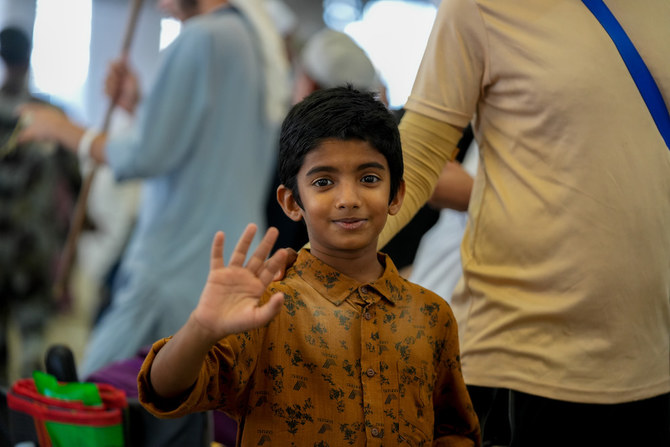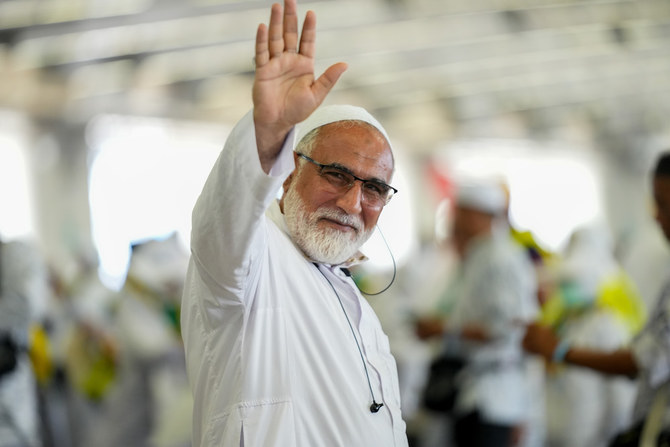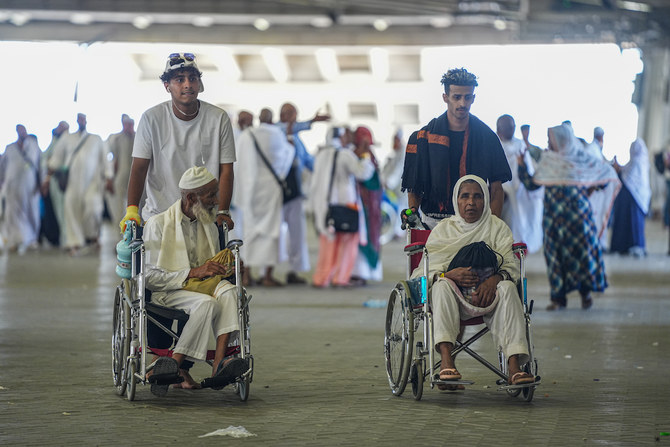MINA: After the conclusion of the three-day ritual of Rami Al-Jamarat, also known as the Stoning of the Devil, pilgrims are now making preparations to say their goodbyes to Makkah and commence their journeys back to their home countries.
During the farewell Tawaf at the Grand Mosque in Makkah on Friday, pilgrims’ faces displayed a blend of immense joy for successfully completing Hajj and a hint of sadness as they prepared to bid farewell to the holy site.
A large number of pilgrims, who initially arrived in Makkah, will now make their way to Madinah to offer prayers at the Prophet’s Mosque and explore significant Islamic landmarks. Meanwhile, the remaining pilgrims, who first arrived in Madinah, will begin their journeys back to their respective countries.
Every Muslim is obligated to perform Hajj once in a lifetime if they are physically and financially able to do so. This year more than 1.8 million Muslims from around the world traveled to the holy city of Makkah for the sacred pilgrimage, which is one of the five pillars of Islam.
Hajj lasts for five days, and officially begins on the eighth of Dul Hijjah, soon after dawn (Fajr) prayers, which are performed in Makkah. Pilgrims then travel to the tent city of Mina, about 8 km away.
Pilgrims spend the day and night in Mina praying, reciting verses from the Qur’an and praising the Almighty. After that, they make their way to Arafat and then to Muzdalifah.
Pilgrims stay in the desert plains of Arafat, praying and repenting, until after sunset on the same day. They then make their way to Muzdalifah, a valley between Mina and Mount Arafat, where they spend the night out in the open. They also gather small pebbles to be used in a special ritual the following day at Jamarat.
For many pilgrims, especially those embarking on the Hajj for the first time, the five-day journey was an unforgettable experience that left a lasting impression.
“In the beginning, it was kind of a bit emotional for me to see the Kaaba for the first time. And when we did the Tawaf, it was very emotional. But then I was really relaxed and felt like a family gathering … we feel like we have accomplished this huge thing together. I feel relieved. I feel a lot of stress that was kind of burdening me for many years has been gone, I feel recharged in many ways,” said Adnan Mahmotavic, a pilgrim from Bosnia.
Hamidah Sadiq, a pilgrim from Malaysia, shared her emotional experience with Arab News, tears welling up in her eyes, as she described how her extraordinary journey will forever be etched in her memory.
“There are no words to describe coming here to Hajj. I can’t describe my feelings. I am so happy. In Malaysia, we say ‘It’s all God’s will.’ And we stayed patient, hoping our Hajj to be accepted,” said Sadiq.
As tears filled their eyes and smiles adorned their faces, the journey for the pilgrims reached its conclusion, with the curtains closing until the next year.
Health challenges
The annual ritual is increasingly challenging due to rising global temperatures, making the desert climate of the Kingdom even more sweltering.
Despite the Ministry of Health making several announcements before this year’s season on how to avoid health issues and stay healthy throughout the five-day journey, pilgrims still faced numerous health issues.
“Some of the cases that we have received this season were heart-related problems due to exhaustion. Some patients already have health problems, but the problem intensifies with exhaustion,” said Amal Salamah, a family medicine consultant from Dammam and a Hajj volunteer.
Salamah said that ambulance cars provided by the Ministry of Health helped patients who were unable to complete their rituals individually. Pilgrims were assisted by a medical team and provided with an ambulance car to ensure their safe completion of Hajj.
Another issue that arose was the impact of the heat on pilgrims’ health in Mina, which hindered their ability to fulfill their obligations properly. Heatstroke was a common health issue, with some pilgrims also suffering dehydration, physical strain and fatigue.
To ensure the success of the healthcare plan, doctors and nurses arrived a week before the pilgrims, and Ministry of Health employees underwent training to raise their awareness of preventative healthcare.
The ministry has equipped hospitals, healthcare centers and other facilities with essential materials, including personal protective equipment and high-efficiency air purifiers for use in patient isolation rooms.



